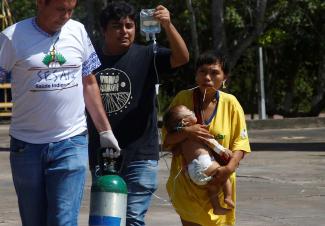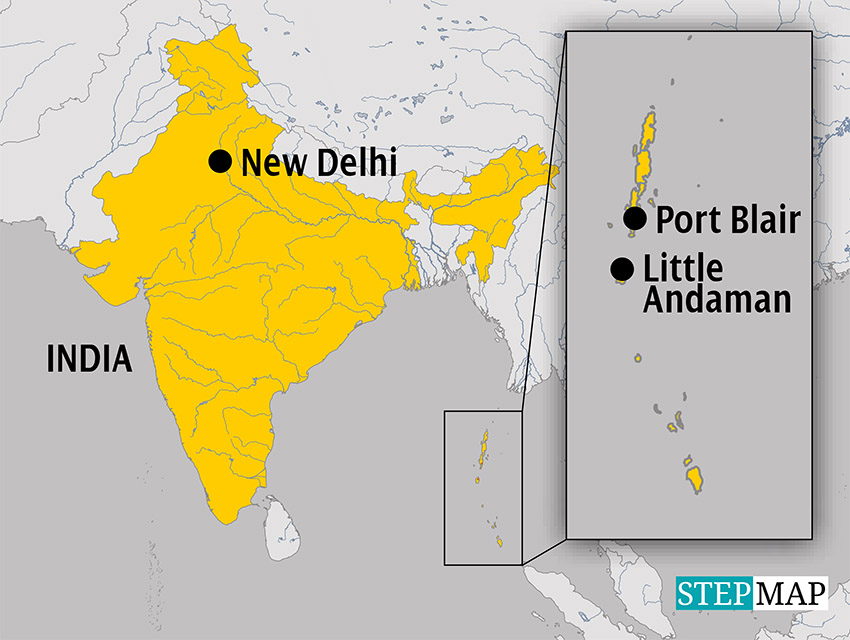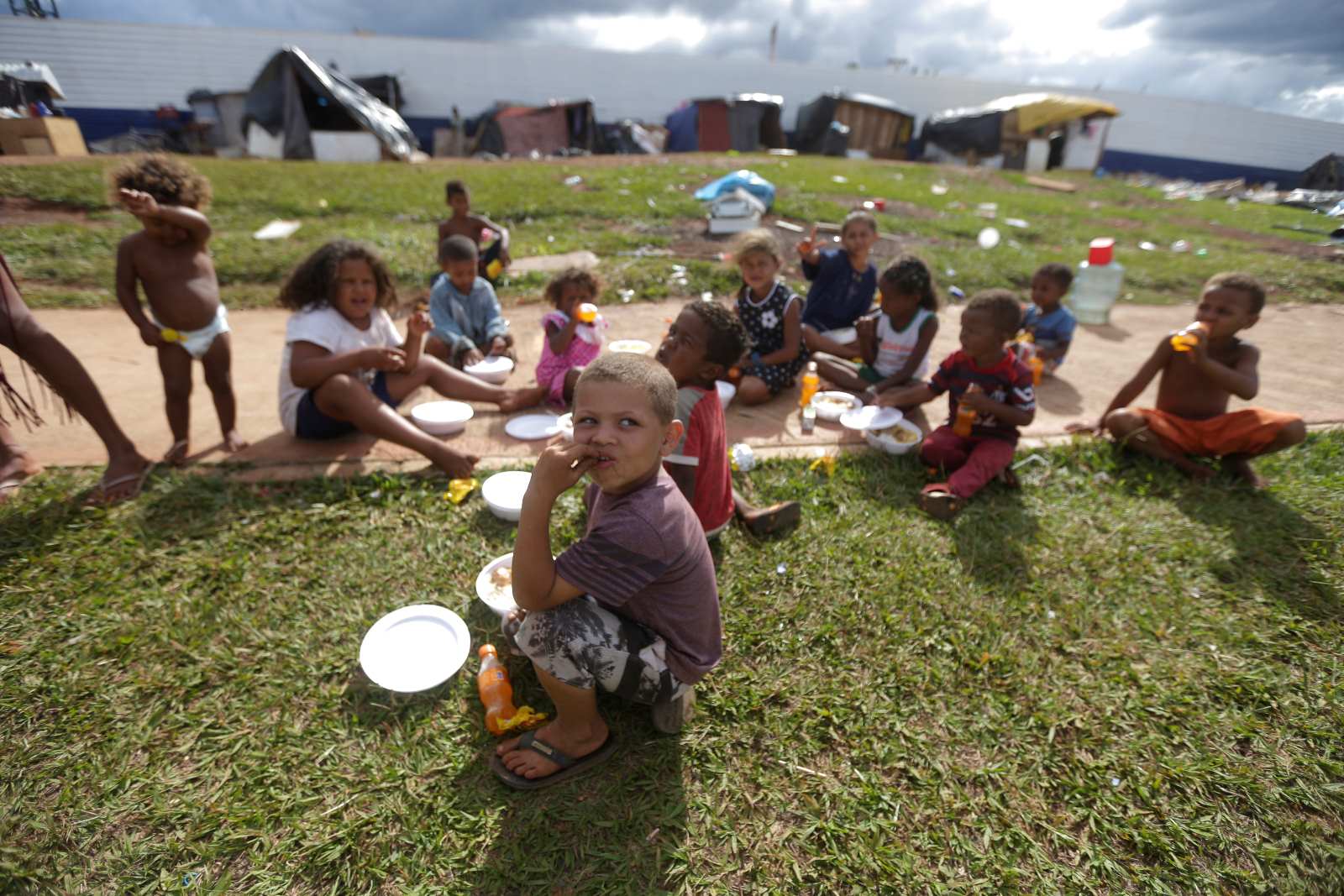Indigenous people
The Yanomami are dying, and their blood is on Bolsonaro's hands

After democratisation, Brazil’s indigenous peoples succeeded after long struggles to have their land protected by the constitution. That laws are not enough to protect these groups became clear under the government of President Jair Bolsonaro. He never made a secret of his intentions to provide access to indigenous lands for exploitative and unsustainable economic activities, especially gold mining, but also agriculture and cattle herding.
Actually, this should not have come as a surprise: 30 years ago, Bolsonaro, then a congressman, had introduced a bill in the House of Representatives aimed at overturning a 1991 ordinance that marked off Yanomami indigenous lands. He failed at the time, but made further attempts after being elected president.
While he was in office, Bolsonaro severely hampered institutions set up to protect indigenous groups and the Amazon forest. Because Norwegian and German donors would not allow his government to fully control the Amazon Fund, which supports successful projects to protect the rainforest, those projects did not receive any funding during most of his term.
Bolsonaro moreover underfunded critical federal environmental-protection agencies such as the Brazilian Institute for the Environment and Renewable Natural Resources (IBAMA) and the Chico Mendes Institute for the Conservation of Biodiversity (ICMBio) and took away their authority to destroy equipment used for illegal deforestation and mining. Bolsonaro even went so far as to prosecute officials of these agencies who were only trying to do their job.
He weakened the laws and regulations protecting the Amazon forest and its first inhabitants as much as he could without the support of Congress. Basically, he left the federal government incapable of enforcing the laws protecting the environment and the constitutional rights of Brazil’s indigenous groups.
The Yanomami are the largest of these groups and comprise an estimated 28,000 to 35,000 people. Their land covers 96,000 square kilometres – larger than Portugal – and is located in the northernmost Brazilian states of Roraima and Amazonas. It would always be invaded by illegal gold miners and other groups. Even before Bolsonaro was elected, there were frequent conflicts that often ended in deadly shootings.
However, as of 2019, the situation has worsened considerably. According to a study published by the Hutukara Yanomami Association (HAY), illegal gold mining increased by 54 % in 2022, destroying more than 2000 hectares of Yanomami land. The study also shows an exponential increase in deforestation due to mining since 2018, when the association began monitoring these activities. Their illegal mining monitoring system is based on imagery from Constellation Planet, satellites with high spatial resolution.
It is estimated that about 20,000 gold miners are operating in Yanomami land. They are reportedly linked to organised crime and particularly to drug trafficking gangs of São Paulo and Rio de Janeiro. In addition to deforestation, illegal gold mining is causing enormous damage to Amazonian rivers and depriving the Yanomami and other indigenous groups of their livelihoods, which depend mainly on fishing and hunting.
The miners use highly toxic mercury to separate gold from other sediments. A report by the Brazilian police shows that four rivers in Yanomami land are heavily contaminated with the metal. It enters the body not only through the consumption of contaminated fish or water, but also through body tissue or its vapours in the air.
The miners also spread Covid-19 and other diseases. Children and older people are particularly affected. According to the Indigenous Peoples’ Association of Brazil (APIB), about 100 Yanomami children died of diseases in 2022 alone and about 570 during Bolsonaro’s entire term. The Ministry of Health moreover has data showing that between 2019 and 2022, the years of Bolsonaro’s government, significantly more Yanomami died of malnutrition than in the previous four years.
Dinamam Tuxá, executive coordinator of the APIB, says that the Yanomami had more difficulties accessing health services during these years. The only health post the federal government maintained near Yanomami land was closed and there were reports of miners forking out medicines and other medical equipment.
This humanitarian catastrophe did not come as a surprise. The Public Prosecutor’s Office has been warning since last year that the government has not taken the necessary measures to evict the miners from Yanomami land. In 2020, the Supreme Court ordered a number of measures to protect indigenous communities, in particular an action plan to evict invaders from Yanomami land and six other indigenous territories. The Court also ordered the implementation of a plan to combat Covid-19 and promote food security, adopt health-care measures and establish sanitary barriers in indigenous areas. Indigenous representatives themselves claim to have made at least 21 calls for help to the government, the Public Prosecutor’s Office, the National Foundation for Indigenous Peoples (Funai) and the Brazilian army since November 2020 regarding the dramatic situation of their communities. All were ignored.
Under Bolsonaro, however, the federal government continued to tolerate – if not promote – illegal mining and deforestation. In fact, a plan had already been developed by IBAMA to eradicate illegal mining in Yanomami land within six months through air and river controls at sites mapped by environmental inspectors. But the plan was never implemented. The Supreme Court is now looking at evidence that Bolsonaro gave false information about the situation of the Yanomami in the face of an unfolding tragedy.
At the end of January 2023, the newly elected federal government under Luiz Inácio Lula da Silva began to transfer indigenous people in poor health to hospitals in Boa Vista, the capital of Roraima. There are currently about 700 Yanomami hospitalised. Lula also called on the military to provide airlifted food and medicine to the Yanomami. However, their territory is vast, remote and lacks basic infrastructure, including airstrips.
In addition, the new government launched an operation to expel the illegal gold miners from Yanomami land. Troops of the armed forces, representatives of IBAMA and the federal police are involved in the operation. However, the fate of the large number of extremely poor people living from illegal gold mining is itself another indication of the huge social challenges Brazil is facing.
The new justice minister Flávio Dino has now ordered Brazil’s police to launch an investigation to determine whether Bolsonaro and his government committed genocide, and the Public Prosecutor’s Office is also investigating possible crimes committed against the Yanomami by the previous government. Moreover, in an unprecedented initiative by an indigenous organisation, ABIP has filed a lawsuit with the International Criminal Court (ICC) in The Hague to charge the Bolsonaro government with genocide. However, Bolsonaro can only be prosecuted at the ICC if the Brazilian judiciary fails to conduct a fair trial.
What happened to the Yanomami clearly shows that the fate of the rainforest is inextricably linked to that of its first inhabitants. Satellite images published by Brazil’s National Institute for Space Research (INPE) show that the best-preserved parts of the Amazon forest are precisely the areas designated as indigenous peoples’ lands. If governments continue to act in the interest of high and immediate profits at the expense of environmental sustainability and biodiversity, the Yanomami will only be the first of many to die.
André de Mello e Souza is an economist at Ipea (Instituto de Pesquisa Econômica Aplicada), a federal think tank in Brazil.
andre.demelloesouza@alumni.stanford.edu
Twitter: @A_MelloeSouza











